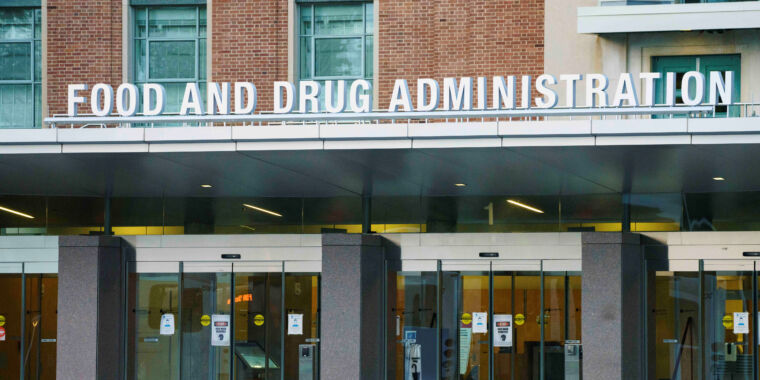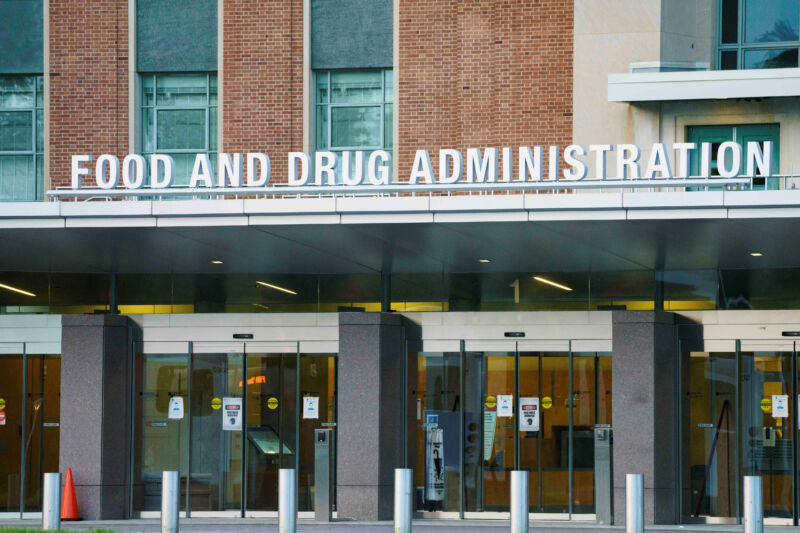

Vaccine-makers Moderna and Pfizer have now both submitted requests for the US Food and Drug Administration to authorize fourth doses—second boosters—of their COVID-19 vaccines.
Pfizer, along with vaccine partner BioNTech, announced Tuesday that they had asked the FDA to authorize fourth doses for adults age 65 and above. The move followed days of Pfizer CEO Albert Bourla saying in press interviews that a fourth shot is “necessary” for everyone.
Late Thursday, Moderna announced that it, too, had asked the FDA to authorize fourth doses—for all adults. Moderna addressed the broader request in its announcement, saying it’s intended to “provide flexibility” for the FDA and the Centers for Disease Control and Prevention to decide for themselves who should get a fourth dose—whether it’s specific age groups and/or groups with higher risks of disease.
The outlook for the submissions is murky. On one hand, real-world data indicates that protection from three doses is waning against omicron, particularly against infection. And although cases in the US are in decline for now, a yet-more-transmissible version of omicron—BA.2—continues to increase in prevalence. It’s now estimated to account for 23 percent of cases in the US, furthering its steady progress in usurping the initial omicron variant, BA.1. The rise of BA.2, coupled with widespread relaxation of mitigation efforts, such as mask wearing and distancing, have many experts anticipating another rise in cases, as is currently happening in many countries in Europe. Already, SARS-CoV-2 levels in US wastewater are rising, signaling an early warning of increasing transmission. Together, this all makes an argument for use of a fourth dose now, at least in vulnerable populations.
But, on the other hand, it’s unclear how much a fourth dose would help to prevent infections and how long such gains would last. Though vaccine effectiveness does appear to be waning across the board, protection from hospitalization and death remains strong. (Effectiveness against hospitalization four months after a third dose fell from 91 percent to 78 percent, CDC data found recently.) And much of the data on the effectiveness of fourth doses comes from Israel, where fourth boosters have been offered to several groups—including people age 60 and above, as well as health workers and people at high risk of exposure or disease—but only for a short period of time so far.
Israeli data
In one study, carried out with the help of the Israeli Ministry of Health, Israeli researchers analyzed health records of more than 1.1 million people age 60 and over who were eligible for a fourth dose amid the omicron wave. People with a fourth dose were two times less likely to be infected and around four times less likely to have severe COVID-19 compared with people who had only three shots, the analysis found. However, fourth doses were only recently offered, and the study period was short. The researchers weren’t able to look at effectiveness past the first 23 days after a fourth dose. The study was posted online on a pre-print server and has not yet been peer-reviewed.
In another study published Wednesday in The New England Journal of Medicine, fourth doses seemed less useful against omicron. Researchers examined data on 1,050 Israeli health care workers who were eligible for fourth shots. Of those, 154 received a fourth dose of the Pfizer vaccine and 120 received a fourth dose of the Moderna vaccine. Overall, the fourth doses appeared safe and bolstered waning antibody levels compared with those in matched controls. However, effectiveness against infection was modest at best. While 25 percent of health workers in the control group were infected, so were 18 percent of people who got a fourth dose of the Pfizer vaccine and 21 percent of people who got a fourth dose of the Moderna vaccine.
The researchers estimated that the efficacy against any infection (asymptomatic and symptomatic) was 30 percent for the fourth Pfizer dose, and 11 percent for Moderna. But, with such a small study, none of those estimates reached statistical significance. Protection against just symptomatic infections appeared a little better: 43 percent for Pfizer and 31 percent for Moderna. But, again, with such a small study, the confidence intervals on those estimates were large. Still, the efficacy against symptomatic infection was, at best, 65 percent, the study authors highlight. “Thus, a fourth vaccination of healthy young health care workers may have only marginal benefits,” the authors concluded. “Older and vulnerable populations were not assessed.”